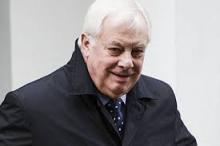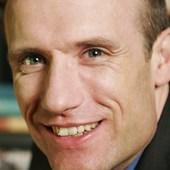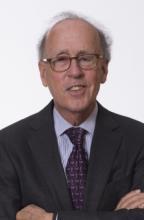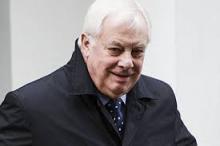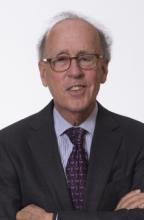Jerusalem: A Flashpoint For Conflict Or Microcosm Of Peace
The flareup that has engulfed East Jerusalem over the past few days should surprise no one. The status quo could never be sustained; the Palestinians’ resentment of the occupation was only deepening and any incident could have precipitated a violent outbreak. This time it was the order to evict six families from the Palestinian neighborhood of Sheikh Jarrah in East Jerusalem. For the Palestinians, this became symptomatic of Israel’s much wider scheme of ethnic cleansing to make more room for Jewish settlers and thereby Judaize East Jerusalem, which Israel views as an integral part of its capital. Israel may hold onto East Jerusalem for another 54 years, but the Palestinians, and for that matter the Arab states, will never give up on their claim to East Jerusalem.
While we can find temporary solutions for the current violence, then what? A long-term solution is necessary to ensure that Jerusalem does not continue on its path as a flashpoint city for violence. That said, there is a way whereby both sides can live in a united city and make it a microcosm for peaceful coexistence.
Jerusalem is unique in that both Israelis and Palestinians—and Jews, Muslims, and Christians around the world—have a special affinity to the city. There are four major factors that attest to the city’s uniqueness. First, East Jerusalem houses the largest mixed Jewish-Arab community anywhere in the world, with roughly 215,000 Israelis and 328,000 Palestinians who move freely across the city, east and west, and throughout Israel.
Second, the city’s infrastructure and services—roads, electrical grid, communications, and maintenance—are all fully integrated, and there is simply no way that they can be divided. In fact, neither Israel nor the Palestinians want to physically divide the city, regardless of its final political status.
Third, Jerusalem is home to the Jews’ holiest shrine, the Western Wall, the third-holiest Muslim shrines, the al-Aqsa Mosque and the Dome of the Rock, and the holiest sites in Christianity within the Church of the Holy Sepulchre. The fact that the Jewish and Arab holy shrines are adjacent to one another requires them to fully collaborate on security, tourism, access to the holy sites, and improvements.
Fourth, the main contentious issue between the two sides is the political status of the city. Given however that under any circumstances the city will remain united physically, and the majority of the population in East Jerusalem are Palestinian, it is essential that the city’s administration reflects the reality on the ground.
To truly recreate Jerusalem as a microcosm of peace, East and West Jerusalem would be independent municipalities—East Jerusalem as the capital of the Palestinian state and West Jerusalem as the capital of Israel. In addition, a joint Israeli-Palestinian council must be established to handle any issues or services that impact the two parts of the city, including electricity, water, certain municipal services, cross-border crimes, and joint development projects, to name a few examples. The council should have a clear and well-defined mandate to ensure that neither side can infringe on the other’s separate municipal responsibilities.
In this regard, since Israel occupied East Jerusalem in 1967, the Hashemite Kingdom of Jordan has and continues to maintain the custodianship and the administration over the Muslim holy shrines, Haram al-Sharif, and will continue to do so regardless of the final agreement; Israel will maintain its control over the Western Wall. As a part of this, a religious council encompassing Judaism, Islam, and Christianity would be established to address various issues related to their holy shrines.
In the final analysis, Israel will have to accept that the Palestinians will establish their capital in East Jerusalem, while all Israeli Jews living on the east side of the city can remain where they are. In fact, the Trump administration’s official recognition of Jerusalem as Israel’s capital clearly states that “We are not taking a position on any final status issues, including the specific boundaries of the Israeli sovereignty in Jerusalem, or the resolution of contested borders. Those questions are up to the parties involved.”
The ongoing disturbances actually present an opportunity for Biden to be very decisive that this violence is not something that will go away once the immediate flareup subsides. Biden should declare definitively that while West Jerusalem belongs to Israel and the US recognizes it as such (given that the US Embassy is located there), East Jerusalem is not part of Israel’s capital.
There are many Israelis, perhaps a majority, who insist that the Palestinians’ future capital can be established in either Abu Dis or Silwan, which would be incorporated into Greater Jerusalem. The Palestinians will continue to reject that off-hand, especially because they have the backing of the international community and the Arab states and in particular Saudi Arabia. Indeed, the Saudis uphold the establishment of the Palestinian capital in East Jerusalem as sacrosanct to the Arab world as a whole.
Those Israelis who bask in the illusion that East Jerusalem will forever remain under Israeli control must realize that only through the use of force can Israel maintain control and even then, frequent flareups, such the current one, will happen and potentially escalate into a full-blown violent uprising.
The upcoming new Israeli government should view the unfolding events in Jerusalem as the catalyst for looking somberly at long-term Israeli-Palestinian relations. Moreover, every Israeli should remember that under any violent conflict, the Arab states will always land on the Palestinian side, and put an end to and possibly abrogate current diplomatic relations with Israel.
The Biden administration now has a golden opportunity to change the dynamic of the conflict over East Jerusalem. Biden should insist that given the history of the city, its religious symbolism and the reality on the ground, a solution to the future of East Jerusalem could become a microcosm of Israeli-Palestinian peaceful coexistence under the framework of a two-state solution. Only such an outcome will usher in a comprehensive Israeli-Palestinian peace.
____________
Dr. Alon Ben-Meir is a professor of international relations at the Center for Global Affairs at NYU. He teaches courses on international negotiation and Middle Eastern studies.
Web: www.alonben-meir.com



